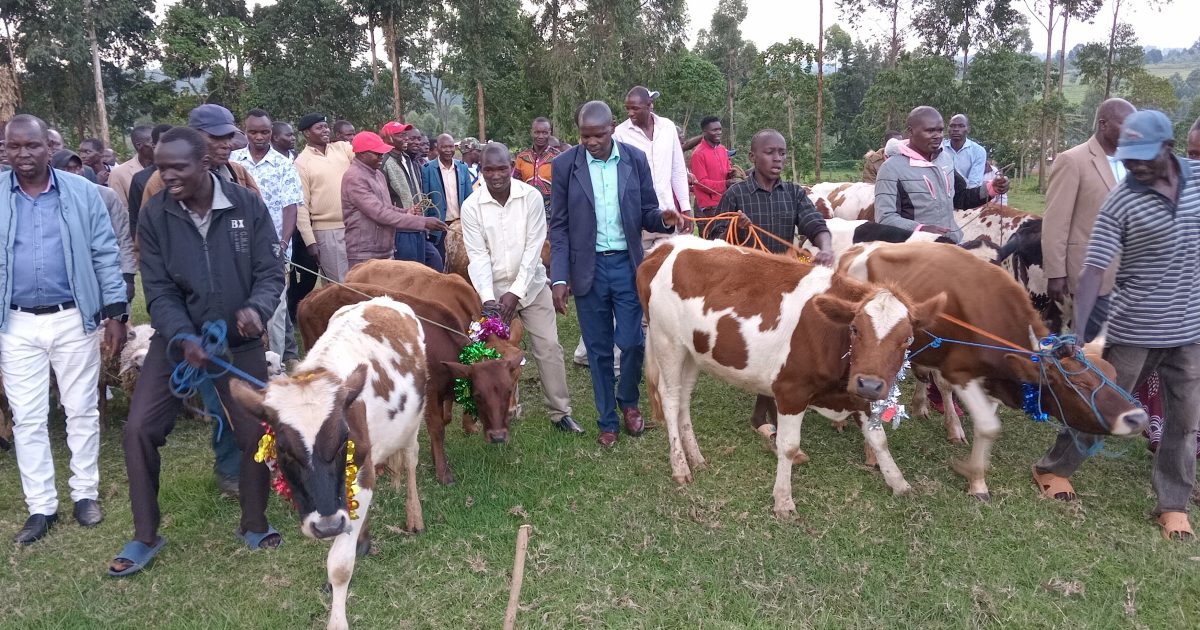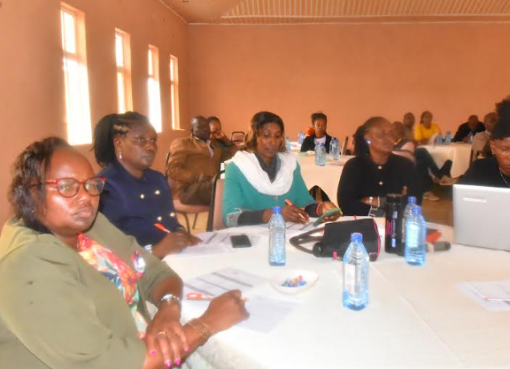Nandi South’s organised youth groups have implemented empowerment programmes, leading to a significant reduction in cattle rustling.
John Kiplimo Keter, brainchild of bringing households together, says youths who engage in cattle rustling along neighbouring counties forced him and few of his friends to come up with proposals on how they can engage them constructively.
The initiative aims to end cattle rustling and tribal conflicts by requiring every family to own livestock through a merry-go-round initiative in Vihiga, Kisumu, and Nandi.
Meanwhile, Nunua Ng’ombe, kuku na Kondoo groups that loosely translated as ‘buying cattle, chickens and sheep’ has now gained trust among local leadership as the only hope for abandoning cattle rustling activities among residents living along the remote Nandi escarpments.
Keter said that the group was just a village group that started as youth’s empowerment in 2020. “We were only ten members representing every family, and we contributed money to buy livestock and after one year each household owned a cow and people borrowed the idea,” he narrated.
He remembers how a group started simply as a model of table-banking and the residents in the larger Bonjoge division embraced the initiative now Kereri, Kenyor, Kapkembu and Chemburu villages have registered with the program.
He revealed that over 250 households have registered with the welfare policy that has enhanced security and brotherhood among the locals. Hence, Keter, the initiative’s founder, has supplied 150 livestock to those without cows, sheep, and chickens, and the committee will ensure their sustainability for production standards and income generation.
Recently at Kereri Primary School in Nandi South attended by close 600 residents witnessed distribution of livestock among families. Whereas, fifteen groups were sharing 70 cows, 300 chickens and 50 sheep which have been bought for the last six months.
The families considered vulnerable were gifted with the livestock to kick start dairy and poultry farming to better their living standard. “We had no roads to access the villages in the cliffs and the youths engaged in animal theft, a retrogressive cultural practice to get dowry. They could cross the border to Vihiga and Kisumu and drive cows from their families,” Eliud Chesire, a retired teacher remembers
He said close to a decade ago, community clashes hindered development in the community and children were not going to school due lack of school fees.
“We organised training on animal husbandry to locals to equip them with dairy farming skills. And we are looking forward to mobilizing more members to join community groups to participate in diverse training in farming that is the major economic activity in the region,” he stated.
Barack Abiyo, the assistant chief for Aldai Division confirmed that the community development has advanced cohesion in the region and neighboring communities. “We have realized economic empowerment and education has greatly eradicated vices that destabilized the area, and the nyumba kumi representatives have been spearheading the program to also rid out illicit brews in the villages,” he said.
Cattle rustling is one of the retrogressive cultural practices that have been the cause of insecurity in some parts of the North Rift region in Kenya.
It has cost the government of Kenya millions of money deploying police and initiating development infrastructure in a bid to quell banditry-stricken regions.
By Geoffrey Satia




